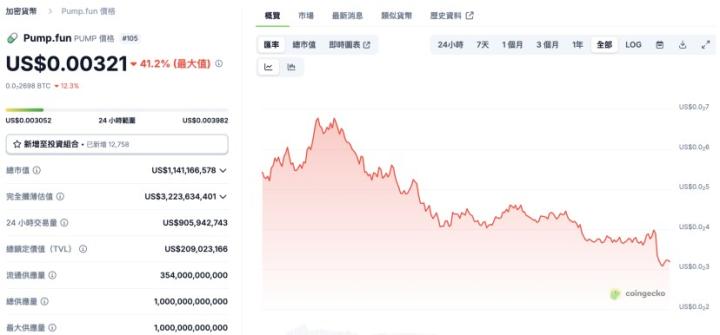The U.S. law firm Burwick Law has recently expanded its lawsuit against Pump.fun, accusing the platform of being a "digital casino" disguised as a token issuance platform, and naming several top executives from the Solana Foundation, Solana Labs, and Jito as co-conspirators, allegedly involved in serious crimes including illegal gambling, fraud, money laundering, and unauthorized fund transfers.
Table of Contents
ToggleToken Issuance Platform or Illegal Casino? Burwick Accuses Pump.fun of Multiple Serious Financial Crimes
In January this year, Burwick Law, together with Wolf Popper, filed a class-action lawsuit against the Solana token issuance platform Pump.fun.
Now the case has new developments, with the law firm accusing Pump.fun of violating not only securities laws, but also the Bank Secrecy Act, FinCEN regulations, OFAC sanctions regulations, and even the Racketeer Influenced and Corrupt Organizations (RICO) Act.
Its underlying entity, Baton Corporation, is now alleged to be involved in illegal gambling, financial fraud, intellectual property infringement, and unauthorized fund transfers.
The legal document filed on Tuesday indicates that Pump.fun attracts retail investors through a "no identity verification" token issuance process and an "unregulated" high-risk speculative model, deliberately helping to create and promote tokens that gain attention through hate speech, violence, and exploitative content.
Burwick states that users unknowingly participated in a game structured similar to a casino, with a carefully designed and large-scale network of co-conspirators behind this "digital slot machine".
Solana Foundation and Jito Labs Executives as Co-Conspirators: What Did They Do?
The lawsuit lists the Solana Foundation, Solana Labs, and Jito Labs as defendants, pointing out that top executives including Solana co-founders Anatoly Yakovenko and Raj Gokal, Solana Foundation CEO Dan Albert, and Jito CEO Lucas Bruder are participants and beneficiaries of the conspiracy structure. Burwick emphasizes:
From token design, fee extraction, infrastructure operation to validator coordination, Solana and Jito are not bystanders, but knowing and intentional participants in the fraud.
Specifically, Pump Fun takes fees from each transaction and token issuance; Solana Labs profits from increased token circulation efficiency and SOL price appreciation; Jito Labs captures and earns substantial revenue through MEV tools during token issuance.
The law firm criticizes that this conspiracy case is meticulously coordinated, circumventing U.S. securities and financial regulations while continuing to attract capital from the U.S. market, essentially an illegal high-frequency gambling project wrapped in a decentralized shell.
Pump.fun Becomes Money Laundering Paradise for North Korean Hackers: How Much "Black Money" is in the High Trading Volume?
Regarding violations of FinCEN and OFAC regulations, Burwick accuses Pump.fun of becoming a money laundering tool for the North Korean hacker group Lazarus Group: "Lazarus exploits Pump.fun's complete lack of KYC and AML measures to issue multiple meme coins and launder funds."
He emphasizes that hackers attract large trading volumes by issuing numerous meme coins and successfully converted part of the $1.5 billion stolen from Bybit into SOL within just a few days:
Solana and Jito knew their infrastructure could be misused but did not prevent or disclose this, nor provided any user protection or regulatory measures, essentially condoning or even assisting such activities.
Solana Ecosystem Faces Potential Major Regulatory Impact
The case is currently being reviewed by New York Southern District Judge Colleen McMahon and is considered one of the most potentially disruptive legal challenges to Pump.fun and the entire Solana ecosystem.
Currently, Pump.fun has hired the international law firm Brown Rudnick to defend itself, including former SEC investigator Daniel Sachs and senior crypto lawyer Stephen D. Palley, but the event has already triggered a chain reaction in the market.
The lawsuit's outcome will not only determine the fate of the Pump team but will also draw the attention of regulatory bodies from various countries to the Solana ecosystem.
Risk Warning
Cryptocurrency investment carries high risks, and prices may fluctuate dramatically. You may lose all your principal. Please carefully assess the risks.
As blockchain technology rapidly spreads, cryptocurrencies are increasingly becoming new tools for organized crime and money laundering. Facing this borderless technological crime war, INTERPOL is actively enhancing its capabilities in blockchain intelligence and digital forensics. Vincent Danjean, head of INTERPOL's Cybercrime and Emerging Technology Laboratory, shared his observations and strategies in combating crypto asset crimes.
Major Challenge: Anonymity and Decentralization Make Investigations Extremely Difficult
Danjean pointed out that the primary challenge for law enforcement when investigating crypto crimes comes from blockchain's "pseudo/anonymity". Although all transactions can be publicly queried on-chain, addresses are not directly linked to real identities, making tracking suspects difficult.
Moreover, criminals use mixers, privacy coins, and DeFi tools to hide fund flows, further increasing investigation complexity. Differences in cross-border regulatory frameworks and procedures also often impede investigative progress.
To address these issues, INTERPOL is promoting international cooperation and upgrading blockchain intelligence capabilities, focusing on improving wallet address attribution analysis, on-chain forensic techniques, and standardizing investigation processes.
Public-Private Collaboration is Key to Solving Cases: Tracking Fund Flows with Blockchain Analysis Companies
Blockchain analysis companies and crypto asset service providers (like exchanges) play crucial roles. Law enforcement typically tracks illegal funds through these partners' tools, tracing from suspicious wallets to platforms with identity verification.
However, such operations currently rely heavily on manual analysis and data exchange, unable to cope with the rapid expansion of crypto crimes. In the future, more public-private collaboration mechanisms, such as jointly developing scientific and verifiable analysis standards and techniques, will help improve investigation efficiency and accuracy.
Avoiding Duplicate Investigations: Cross-National Data Sharing and Establishing Common Standards are Urgent
Danjean warned that many cases are part of global network crimes, but because victims are distributed worldwide, law enforcement agencies often investigate separately, wasting resources.
He advocates establishing a "data interconnection" operational mechanism, such as sharing wallet address data, transaction pattern and crime method analyses, to further connect seemingly unrelated cases. This not only accelerates investigation but also helps identify larger criminal networks.
Strengthening such cross-national real-time intelligence sharing requires unified platforms and common data standards to truly achieve global blockchain investigation integration.
Automation and AI Assistance: Making Investigations Faster and More Precise
With transaction volumes surging and money laundering methods becoming more complex, traditional manual tracking methods are no longer sufficient. Criminals have already used automation technologies to accelerate fund whitewashing and obfuscate transaction paths, making "following the money" more difficult.
To keep up with this technological wave, Danjean emphasized the need to introduce automation and AI technologies to assist investigations. For example, using machine learning models to detect suspicious transaction patterns in real-time and quickly process large volumes of blockchain data.
However, he also cautioned that AI applications in judicial contexts must be approached carefully. Because data samples are relatively limited and false signals like wash trading are high, human review mechanisms must be retained when using AI to ensure evidence is verifiable and explainable in court.
Three Strategic Conclusions: Data-Driven + Automation + International Cooperation are Key
Regarding the future of blockchain law enforcement, Danjean emphasized three core strategies:
- Establish a globally connected investigation model: Break geographical limitations, connect cross-border criminal activities through data interconnection and case correlation techniques, and improve overall case-solving efficiency.
- Embrace automation and intelligent technologies: Facing high-frequency transactions and rapidly changing criminal methods, AI and automation tools must be introduced while ensuring the legal credibility of the investigation process.
Data-Centric Investigation Logic: No longer relying solely on tools, but focusing on case linkage and pattern identification using structured, shareable blockchain data as the core.
Danjean called on the international community to jointly establish a blockchain data analysis standard verified by evidence and promote data interoperability between systems, which will be an indispensable foundation for combating cryptocurrency asset crimes in the future.
Risk Warning
Cryptocurrency investment carries high risks, and its price may fluctuate dramatically. You may lose all of your principal. Please carefully assess the risks.







